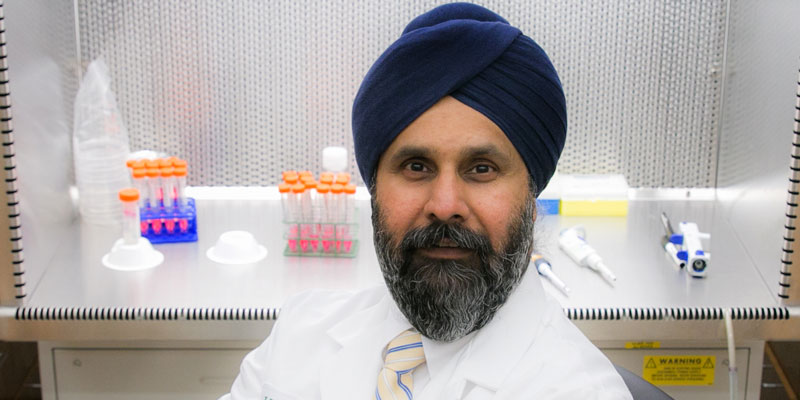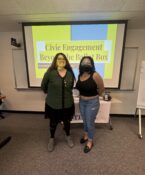Making the path to a PhD more efficient
By Cari Hyden

How can we increase diversity among researchers, decrease the average number of years to get a PhD and help graduates get jobs in the field they studied for?
Just ask Meharvan “Sonny” Singh, PhD. He’s already doing it.
Through his Neurobiology of Aging training grant from the National Institutes of Health, Dr. Singh, Professor of Biomedical Sciences, is getting these results:
- Graduates of the training program during the past five years have a 24 percent diversity rate, much higher than the national average of 8 percent to 10 percent.
- They earn their PhD in an average of 4.8 years, vs. the national average of 6.4 years.
- Among recent graduates, 100 percent of the trainees enter into careers that are relevant to their training.
- They have published more than 70 papers.
“We’re training to a career – not training to a degree,” Singh said. “We want to give students marketable job skills not just for the job market of today, but for the next 10 years. This requires us to be as thoughtful as we can about projecting needs and making sure we prepare students for those needs.”
Singh says graduates must have a solid base of knowledge and be problem solvers with a strong skill base. He’s designed activities to help students refine their problem-solving skills.
He also encourages them to collaborate freely. His program requires each student to identify a collaborative research project and submit a research grant application for it. And he prefers that the research projects address important public health problems.
“We instill into our students that it is not our prerogative to do the research that we do, but rather, it is our privilege,” he said. “And that privilege is endowed by the public’s recognition of a need to do research in the specified area.”
Dr. Singh also emphasizes the importance of communication. He asks students to imagine they are at Thanksgiving dinner with “Uncle Fred” and explain what they are doing and why it’s important – before Uncle Fred gets distracted.
“It’s important for the public and policy makers to understand why research is important,” he said. “The public needs to know that researchers have their interests in mind. We want them to understand clearly that we not only take our responsibility seriously, but that we are interested in making a positive impact on the health of our community.
“We want them to advocate for investments in higher education. Highly educated people will solve the problems of tomorrow.”
![Uyen Sa Nguyen Scaled[58]](https://www.unthsc.edu/newsroom/wp-content/uploads/sites/16/Uyen-Sa-Nguyen-scaled58-145x175.jpg)




Social media